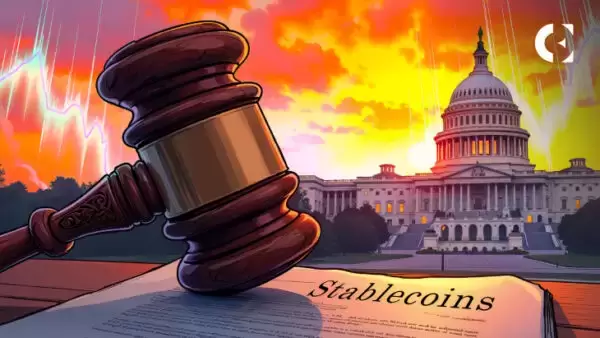 |
|
 |
|
 |
|
 |
|
 |
|
 |
|
 |
|
 |
|
 |
|
 |
|
 |
|
 |
|
 |
|
 |
|
 |
|
Cryptocurrency News Articles
Thailand Begins Trialing Bitcoin Payments in Phuket, Allowing Tourists to Use Cryptocurrency for Transactions, Simplifying Currency Exchange
Jan 10, 2025 at 12:01 pm

Thailand is set to trial cryptocurrency payments in a bid to stay competitive and capitalize on the growing interest in digital currencies. The trial will begin this year in Phuket, a popular tourist destination.
Foreign visitors will be able to pay with cryptocurrencies instead of cash during the trial. The move was announced by Thailand’s Deputy Prime Minister and Finance Minister Pichai Chunhavajira at a seminar organized by the Marketing Association of Thailand.
Chunhavajira said the ministry is looking at piloting cryptocurrencies in tourist cities like Phuket to make it easier for foreign tourists to carry out transactions with their digital assets.
“The trial will not cross the existing laws and will be within the bounds of the law so there is nothing to be afraid of. It doesn’t require any changes to current laws because the government has already the required systems,” he said.
The pilot project will focus on staying competitive and not missing business opportunities, Chunhavajira said. He noted the growing popularity of cryptocurrencies and especially Bitcoin, whose value is rising.
“Bitcoin has a fixed supply of 21 million coins, which add up to more than 2 trillion U.S. dollars,” he said. The project is also being driven by the huge interest from foreign tourists.
Tourists who have declared their Bitcoin will be able to register their coins on a Thai exchange, verify their identity and use the crypto to pay for goods and services during the trial.
A clearing house will then convert the Bitcoins into Thai baht, creating a seamless process for both tourists and local businesses. The aim of this initiative is to simplify transactions, especially for someone who finds it difficult to exchange his foreign assets for the local currency.
For example, Chunhavajira said people from the Russia-Ukraine conflict that have now moved to Phuket may not be able to cover the asking price for a property if they only have enough Thai baht. But, using Bitcoin could certainly facilitate such transactions.
A small community in Kalasin’s Huay Phueng district has already integrated Bitcoin into daily life. Thanks to a local coffee shop owner, also known the “King of Huay Phueng,” over 80 locals in Thailand are now learning how to use Bitcoin’s smallest unit (Satoshi) for Payments. There are now many businesses accepting Bitcoin like noodle shops, tuk-tuks, little market stalls etc.
This move signals that Thailand is ready to adopt digital currency and explore the benefits the digital currency could bring to the tourism industry.
Disclaimer:info@kdj.com
The information provided is not trading advice. kdj.com does not assume any responsibility for any investments made based on the information provided in this article. Cryptocurrencies are highly volatile and it is highly recommended that you invest with caution after thorough research!
If you believe that the content used on this website infringes your copyright, please contact us immediately (info@kdj.com) and we will delete it promptly.
-

-

-

- Fidelity Investments introduces an individual retirement account (IRA) that permits private investors to invest in cryptocurrencies
- Apr 03, 2025 at 10:10 am
- According to the company's website, investors can add virtual assets to their retirement portfolio through Fidelity Crypto for IRAs. However, only Bitcoin, Ether, and Litecoin are the assets available now.
-

- President Donald Trump Announces Sweeping Reciprocal Tariffs on Global Imports and Declares April 2, 2025, “Liberation Day”
- Apr 03, 2025 at 10:10 am
- President Donald Trump marked April 2, 2025, as “Liberation Day” for American industry, signing an executive order to impose reciprocal tariffs on imports
-

- The price of Solana (SOL) is desperately trying to remain above important support levels amid increasing pressure
- Apr 03, 2025 at 10:05 am
- In the last 24 hours SOL crashed from $138 to $131, wiping out gains from a mid-March rally. Technical charts show a bearish rejection at the 50% Fibonacci retracement level ($146.5)
-

- Ethereum (ETH) is again in the limelight, since technical indicators indicate bullish and network activities to a possible turnaround.
- Apr 03, 2025 at 10:05 am
- The ETH is currently acting at $ 1900, whereby analysts indicate a potential bull run if the asset can reclaim the most important resistance levels.
-

- U.S. House Financial Services Committee Advances “STABLE Act” Aimed at Creating a Dedicated Framework for Stablecoin Regulation
- Apr 03, 2025 at 10:00 am
- The STABLE Act, designed to create a dedicated federal framework specifically for stablecoin regulation, has reportedly gained significant bipartisan support.
-

-

- Shocking footage has emerged of a woman cutting down a poster of independent Fowler MP Dai Le
- Apr 03, 2025 at 09:55 am
- Shocking footage has emerged of a woman cutting down a poster of independent Fowler MP Dai Le, saying she's doing so because the Vietnamese-Australian is a “Communist” and a “Muslim”.




























































